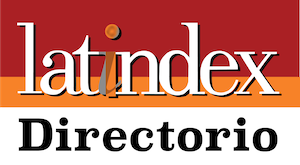Food Sovereignty and Sustainable Development: A Contribution of the Graduate in Food Sciences
Abstract
The role of universities in this century takes on a new dimension, given the importance of training professionals aware of the actions that correspond to them for the sake of human improvement. That is why they play a more active role in the sustainable vision of protection of biological and cultural diversity, in food production as a central axis of the development of society and as a contribution to food security and sovereignty. This work shows how, from a scientific research project, it contributes to the training of students of the Bachelor's degree in Food Sciences, while at the same time it constitutes an important axis of actions for the achievement of food security and sovereignty in goat development communities with emphasis on the diversification process of goat milk. The stages that are completed in the project are delimited with a vision of teaching – research – production integration, in which several presentations have been made at scientific events, publications in top-level magazines and a Branch Award from the Ministry of Agriculture was obtained.
Downloads
References
(1) Bidot, “Manual de Tecnologías aplicadas a la Caprinocultura,”, 2005.
(2) Blair, “The child in the garden: An evaluative review of the benefits of school gardening", Journal Environment Education”, 2009.
(3) Rojas, “Toward food system sustainability through Scholl Food System Change; Think School and the Making of a Community-University Research Alliance”, 2011.
(4) Mendez, “Agroecology as a transdisciplinary, participatory and Action-Oriented Approach", Agroecology and Sustainable Food Systems”, 2013.
(5) Velázquez, “Universidad y seguridad alimentaria: papel del centro universitario municipal”, 2016.
(6) Ramos, “Un acercamiento a la gestión de la seguridad alimentaria y nutricional desde los gobiernos locales, 2014.
Copyright (c) 2018 Ciencias de la Ingeniería y Aplicadas

This work is licensed under a Creative Commons Attribution-NonCommercial-NoDerivatives 4.0 International License.
The authors who publish in this journal agree to the following terms:
- Creative Commons Attribution-NonCommercial-NoDerivatives License allows others to share the work with acknowledgment of authorship of the work and initial publication in this journal.
- Authors may separately establish additional agreements for the non-exclusive distribution of the version of the work published in the journal (for example, placing it in an institutional repository or publishing it in a book), with an acknowledgment of its initial publication in this journal.
- Authors are permitted and encouraged to disseminate their work electronically (for example, in institutional repositories or on their own website) before and during the submission process, as it can lead to productive exchanges, as well as further citation. earliest and largest of published works (See The Effect of Open Access) (in English).











